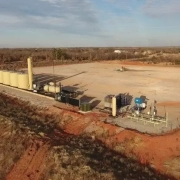Optimizing Royalty Agreements and the Role of Consultants
In the world of mineral rights, intellectual property, and natural resources, royalty agreements are critical instruments. It determine how revenue is between parties in the exploitation of resources. Whether it’s oil, gas, minerals, or even patents and trademarks, royalty agreements ensure that the owner of the resource or intellectual property is fair for its use. However, crafting a well-structured royalty agreement requires careful negotiation. Moreover, it requires specialized knowledge, and a deep understanding of market dynamics. This is where consultants play a pivotal role in optimizing these agreements to the benefit of all parties.
Specialization in Royalty Agreements
Consultants specializing in royalty agreements provide essential expertise that can significantly enhance the value of these contracts. From resource owners and licensors to businesses or companies paying the royalties, consultants bring a wealth of knowledge in negotiation, industry trends, financial modeling, and risk management. Their objective is to ensure that the terms of the agreement are balanced, equitable, and aligned with the market’s realities, ensuring maximum profitability and minimizing potential conflicts down the line.
This article explores the various ways in which consultants contribute to optimizing royalty agreements, including their role in negotiating terms, conducting market analysis, providing financial expertise, and ensuring long-term success for both licensors and licensees.
Understanding Royalty Agreements
A royalty agreement is a contract in which one party (the licensor or resource owner) allows another party (the licensee) to use, produce, or sell their resource, product, or intellectual property in exchange for a percentage of the revenue generated from the resource or product. These agreements are common in industries such as mining, energy, publishing, technology, and entertainment, where proprietary rights or resources have significant economic value.
The main elements of a royalty agreement typically include:
- Royalty Rate: The percentage of revenue that the licensee will pay to the licensor. This can be a flat rate or vary based on performance or volume.
- Term and Territory: The length of time the agreement is valid and the geographical area within which it applies.
- Advance Payments or Minimum Guarantees: Payments made by the licensee upfront or during the contract period, often as a guarantee of minimum earnings for the licensor.
- Reporting and Auditing: Procedures to ensure transparency and accuracy in royalty payments, including regular reporting from the licensee to the licensor.
- Termination and Renewal Clauses: Conditions under which the agreement can be terminated or extended.
Given the intricacies involved in creating a balanced royalty agreement, consultants are often called upon to optimize these terms, ensuring fairness and maximizing financial returns for their clients.
The Need for Consultants in Crafting Royalty Agreements
Consultants specializing in royalty agreements offer a wide range of expertise that can significantly enhance the value and success of these contracts. Below are several reasons why consultants are essential when it comes to optimizing royalty agreements:
Industry Knowledge and Expertise
Royalty agreements span multiple industries, including natural resources, technology, entertainment, and pharmaceuticals. Each of these sectors has its own unique characteristics, market forces, and trends that influence how royalty agreements should be structured. Consultants with specialized knowledge in a particular industry can provide valuable insights into these dynamics and tailor agreements accordingly.
For example, in the mining and energy industries, consultants may advise on production rates, resource extraction methods, and commodity price fluctuations, all of which can impact the terms of the royalty agreement. Similarly, in the tech or pharmaceutical sectors, consultants can assist in structuring royalties based on patents, product development timelines, and licensing arrangements.
Market Analysis and Benchmarking
Royalty rates can vary greatly depending on factors such as industry standards, the value of the resource or intellectual property, and prevailing market conditions. Consultants play a key role in conducting market research and benchmarking royalty rates against industry norms. This helps ensure that the royalty rate is neither too low nor too high, optimizing the agreement for both parties.
Consultants may also provide a competitive analysis, helping licensors understand how their royalty rates compare to similar agreements within their sector or market. By assessing trends, market size, and the financial health of the industry, consultants can guide licensors in setting terms that maximize revenue while ensuring they remain competitive.
For example, in the natural resources industry, royalty rates for oil and gas leases may be influenced by factors like regional pricing, production costs, and the expected lifetime of the resource. Consultants can help licensors assess these factors to determine a royalty rate that reflects both the value of the resource and the market’s expectations.
Negotiation Skills and Strategic Advice
Negotiating royalty agreements can be complex and often requires a delicate balance between ensuring fair compensation for the resource owner or licensor while maintaining a positive relationship with the licensee or operator. Consultants play a crucial role in advising their clients on the best approach to negotiations, helping them navigate the intricacies of the agreement and secure favorable terms.
A consultant’s negotiation skills are particularly valuable when it comes to addressing sensitive issues such as royalty rates, territorial rights, advance payments, and performance clauses. They can provide strategic advice on how to structure the agreement to ensure both parties are incentivized to perform well throughout the life of the contract.
Financial Modeling and Risk Management
A crucial aspect of royalty agreements is ensuring that both parties are protected from potential financial risks. Consultants use financial modeling techniques to assess the potential income and expenses associated with the royalty arrangement, helping licensors understand the projected cash flow over time.
In the case of a resource-based royalty agreement, such as mining or oil extraction, consultants can create financial models that take into account factors like production volumes, operating costs, resource depletion, and commodity price fluctuations. By doing so, they can ensure that the terms of the agreement are realistic and financially viable for both parties.
Consultants also help in mitigating financial risks by advising on the inclusion of clauses that protect against market volatility, environmental concerns, or unforeseen operational challenges. For example, in an oil and gas royalty agreement, consultants may recommend including “floor” or “ceiling” clauses, which limit the royalty rate based on price fluctuations, ensuring that both the resource owner and the operator are shielded from extreme market conditions.
Structuring Performance-Based Royalty Agreements
In many industries, royalty agreements are performance incentives. For example, in the entertainment industry, a film studio may agree to pay royalties to actors, directors, or other creatives based on box office performance, while in the natural resources sector, royalties may depend on production targets or environmental performance.
Consultants help structure performance-based royalties that align the interests of both the licensor and licensee. They assist in determining the appropriate performance metrics and defining the terms under which royalties are. This may include setting thresholds for sales, production, or profits, as well as specifying time frames for payment and performance reporting.
A well-structured performance-based royalty agreement motivates both parties to achieve better results, ensuring that the licensor is compensated in accordance with the success of the product or resource while also encouraging the licensee to maximize their efforts.
Common Challenges in Royalty Agreements and How Consultants Address Them
Creating a fair and effective royalty agreement is not without its challenges. Consultants play an instrumental role in addressing these challenges and ensuring that the agreement remains mutually beneficial. Some common issues that arise during the drafting of royalty agreements include:
Ambiguity in Terms and Conditions
Ambiguous language in a royalty agreement can lead to misunderstandings and disputes between the parties involved. Consultants help ensure that the terms and conditions are clear and legally sound. They can review the agreement for vagueness, particularly with respect to payment schedules, reporting requirements, and performance metrics, to ensure that all parties understand their obligations.
Market and Industry Shifts
Royalty agreements are often long-term contracts, and shifts in market conditions, technological advancements, or regulatory changes can impact their profitability or viability. Consultants stay abreast of market trends and developments, advising their clients on how to adapt their agreements to changing circumstances. For example, if a new technology drastically reduces the cost of production in a mining operation, a consultant might suggest renegotiating royalty rates to reflect the lower costs and ensure continued profitability.
Dispute Resolution
Even with carefully crafted agreements, disputes can arise. Whether due to disagreements over royalty payments, performance metrics, or other terms, these disputes can cause significant damage to business relationships. Consultants can assist in setting up clear dispute resolution processes within the agreement, including mediation, arbitration, or other methods of resolving conflicts before they escalate.
They can also help facilitate communication between the parties during a dispute, ensuring that the resolution process is efficient and fair to all parties involved.
The Consultant’s Impact on Long-Term Success
Optimizing a royalty agreement is not just about getting the best possible terms at the outset—it’s also about ensuring that the agreement remains beneficial and sustainable over time. Consultants play a key role in monitoring the performance of the agreement throughout its life cycle.
They assist with regular audits, ensuring that the royalty payments are accurate and that the terms of the agreement are uphold. Additionally, consultants can recommend adjustments to the agreement as circumstances change, ensuring that both the licensor and licensee remain satisfied with the arrangement.
For example, if a resource owner sees a dramatic increase in the value of their asset due to changing market conditions, a consultant might recommend renegotiating the royalty rate to reflect the new value. Similarly, if a licensee’s financial situation changes, the consultant can advise on adjusting payment terms or finding alternative arrangements that better suit both parties.
The role of consultants in optimizing royalty agreements should not overstate. Their expertise in negotiation, market analysis, financial modeling, and industry knowledge ensures that royalty agreements are to be fair, profitable, and sustainable for all parties. By acting as trusted advisors, consultants help resource owners, licensors, and licensees navigate the complexities of royalty arrangements, addressing challenges, mitigating risks, and ultimately ensuring the long-term success of the agreement.
Whether negotiating favorable terms for a natural resource contract, structuring a performance-based agreement in the entertainment industry, or adjusting royalties in response to market changes, consultants are invaluable in creating agreements that align with both current market realities and long-term business goals.
Do you have any questions related to Optimizing Royalty Agreements? Feel free to reach out to us here.












Leave a Reply
Want to join the discussion?Feel free to contribute!